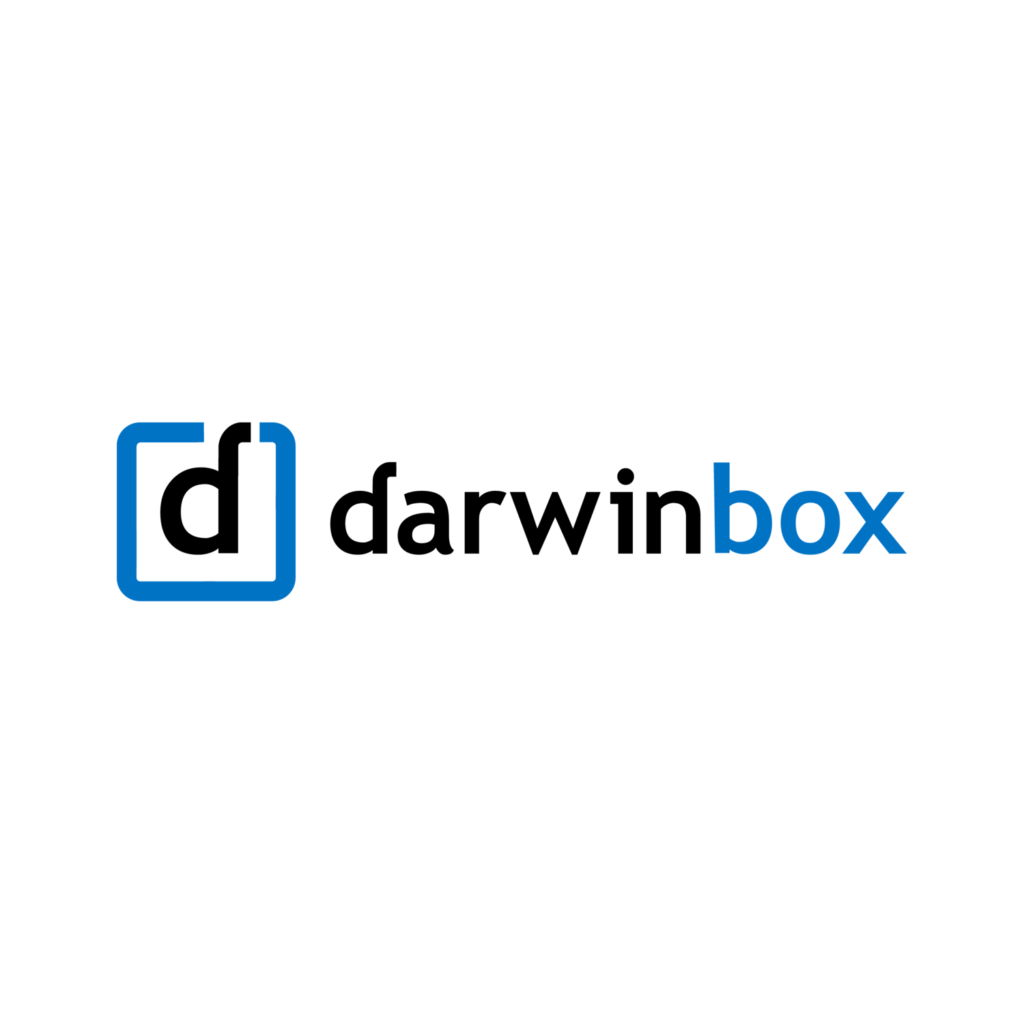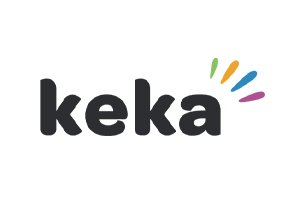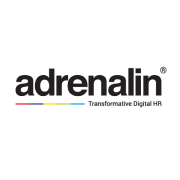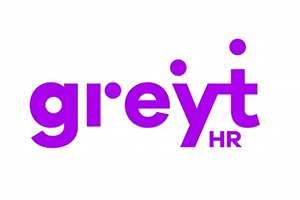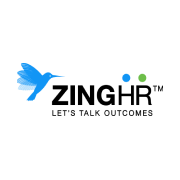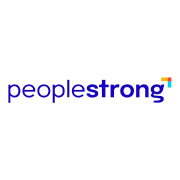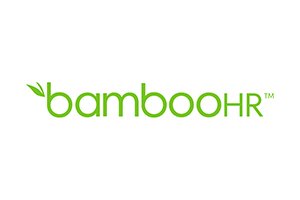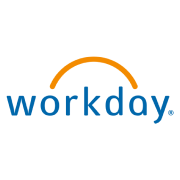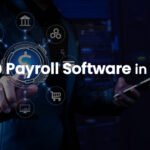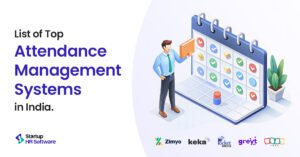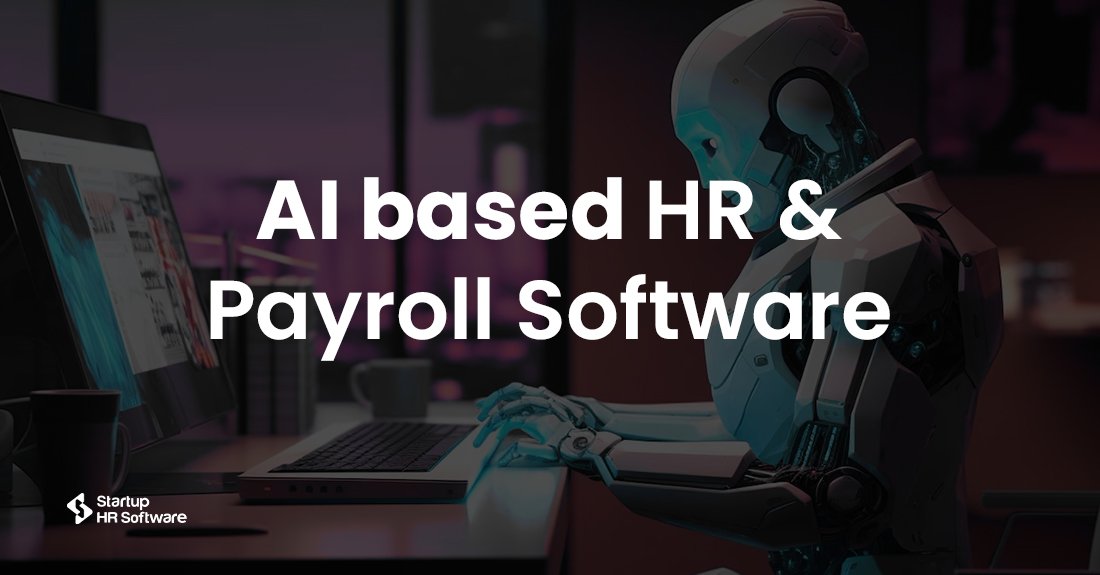
Recent research from SHRM indicates that 1 in 4 employers now uses AI HR software for daily HR tasks. Despite this, many SMEs are still slow to adopt AI tools due to a lack of knowledge about AI-based HR software and its benefits. While AI initially emerged as a trend, it has now become crucial for modernizing HR practices, completely overhauling traditional HR and payroll activities to enhance efficiency and intelligence.
AI has significantly transformed how HR and payroll functions are managed. It has automated repetitive tasks and improved decision-making through advanced data analysis. This shift is more than just a response to technological advancements; it’s about leveraging AI to drive better outcomes and streamline operations.
A recent IBM study highlights that 80% of HR and payroll administrators view AI as essential for enhancing the overall employee experience. AI’s ability to provide personalized and efficient interactions plays a key role in this improvement. Additionally, 75% of HR managers expect that AI will enhance their job roles and offer new opportunities in the next three years. This demonstrates AI’s growing importance in shaping the future of HR management.
AI and automation are more than just trends; they are the future of HR. AI has become a permanent solution to numerous HR and payroll challenges, significantly reducing manual tasks—up to 90%. This enables HR professionals to concentrate on strategic activities, improving the overall employee experience.
Moreover, AI HR software has revolutionized how employee data is managed. From application screening to employee retention, AI tools provide intelligent solutions that boost efficiency and accuracy throughout the employee lifecycle. Embracing AI offers a competitive edge, making it essential for companies to stay ahead in the evolving HR landscape.
If you’re curious about how AI is transforming HR, keep reading. This blog will explore how AI and machine learning are reshaping HR and payroll software, offering insights into their benefits and future potential.
Contact us today and get up to 50% off discount on your favorite AI HR TOOLS.
Understanding AI Technologies
AI stands for Artificial Intelligence and encompasses various technologies such as machine learning, natural language processing (NLP), predictive analytics, and more. It is a subset of data science where machines are made intelligent by feeding them relevant data. This helps companies operate smoothly with minimal human intervention and understand trends through image recognition and pattern analysis. Applying AI in HR and payroll processes streamlines operations, making them faster, cost-effective, error-proof, and risk-free.
Key AI Technologies:
- Machine Learning (ML)
- Natural Language Processing (NLP)
- Predictive Analytics
- Speech Recognition
- Biometrics
- Decision Management
- Natural Language Generation
- Robotics Process Automation
- Deep Learning
Application of AI Technologies in HR and Payroll
AI technologies are integrated into HR and payroll software to create a cloud-based, streamlined system. This integration allows HR admins to focus on strategic areas rather than routine tasks. AI HR software supports application screening, recruitment, training, employee development, and full & final settlement. It also aids in creating employee engagement initiatives, workforce planning, and providing HR chatbots and virtual assistant support. AI HR software tracks everything from hiring to firing, enabling managers to make informed HR decisions. In payroll, AI helps analyze large volumes of data, automates data entry, validates information, ensures tax compliance, and detects fraud. This results in accurate, error-free payroll calculations without manual data entry.
Automating Payroll Processes
Handling HR and payroll tasks manually has long been a challenge for SMEs and large enterprises. It often leads to errors such as incorrect payroll calculations and legal issues. AI automates payroll calculations, deductions, and tax compliance using advanced technologies. AI tools employ predefined algorithms to manage operations like gross pay calculations and salary distribution. By leveraging NLP, machine learning, deep learning, and data structures, AI algorithms detect and correct payroll data discrepancies.
Enhancing Employee Experience
Manual processes made it difficult for employees to get timely answers to their queries, overwhelming HR and payroll admins. AI HR tools address this issue by incorporating advanced AI and machine learning plug-ins. AI-driven chatbots provide instant responses to employee inquiries, improving satisfaction and productivity. Additionally, machine learning tools offer personalized learning and development recommendations tailored to each employee’s needs.
Data-Driven Decision Making
AI and machine learning-based HR and payroll software enable companies to use analytics for insights into employee performance, engagement, and retention. Tracking working hours, dedication, and commitment was previously challenging due to issues like buddy punching and incorrect attendance data. Generative AI and machine learning solutions accurately record employee activities, such as in-and-out timings and achievements, facilitating data-driven decisions on promotions and rewards. This ensures unbiased reward distribution and enhances employee commitment.
Predictive Analytics in Workforce Planning
Predictive analytics utilizes machine learning techniques and statistical algorithms to analyze historical data and forecast future incidents. This helps in workforce planning and budgeting by predicting future staffing needs and associated risks. HR AI tools assist in budgeting for hiring, training, and salaries.
Ensuring Compliance and Reducing Risks
HR and payroll operations are vulnerable to third-party attacks and human errors, leading to costly penalties for non-compliance with tax and labor laws. Adopting AI and machine learning tools in HR and payroll software helps detect anomalies, correct errors, and prevent fraud. These tools monitor regulatory changes and ensure compliance, reducing the risk of penalties and enabling HR admins to focus on other crucial aspects of the organization.
Future of AI in human resources
The future of Artificial Intelligence (AI) and Machine Learning (ML) looks promising, with viral trends and unbeatable innovations shaping various sectors. In HR and payroll software, several emerging AI and ML trends are revolutionizing processes:
- Automated Recruitment: AI streamlines the recruitment process through resume shortlisting, interview scheduling, and more.
- Personalized Employee Experience: AI provides tailored career paths, benefits, and training & development programs.
- AI-Powered Chatbots and Virtual Assistants: These tools handle leave requests, payroll information access, and provide instant responses.
- AI-Driven Learning and Development: Personalizes training opportunities and career development based on individual needs.
- Natural Language Processing (NLP): Enhances the interpretation of complex contracts and ensures accurate salary calculations.
- Employee Sentiment Analysis: Assesses communication patterns to gauge employee sentiment.
- Blockchain Technology: Improves contract management, credential verification, and transparency in employee records.
- Robotic Process Automation (RPA) Integration: Facilitates data-driven decision-making with intelligent insights.
- Diversity and Inclusion Features: AI promotes equality by identifying and minimizing bias in promotions and hiring.
- Predictive Analytics: Assists in predictive hiring, talent acquisition, labor cost forecasting, onboarding processes, and payroll strategy improvements.
Impact on HR and Payroll Functions
These technologies will significantly impact HR and payroll functions in the future. The HR team will increasingly rely on AI for performance management, candidate hiring, and talent acquisition. The employee engagement landscape will shift positively with real-time feedback and personalized solutions through intelligent systems. AI integration and blockchain technology will enhance security, data integrity, and trust within the HR team. Predictive analytics will play a crucial role in personalizing employee development programs, improving HR decisions, and devising effective employee retention strategies.
In payroll systems, AI will reduce payroll errors and compliance issues, leading to a fully automated tax deduction and salary distribution process. It will ensure accurate data integration and synchronization, highlighting discrepancies. AI will also offer corrective measures to avoid penalties, and future AI-powered assistants will streamline payroll processes, making them more cost-effective and efficient. Additionally, robust security measures, including multi-factor authentication, will be implemented to comply with CCPA and GDPR privacy regulations.
Top AI HR Tools for HR & Payroll:
Darwinbox
Darwinbox AI-driven HR software leverages advanced artificial intelligence to enhance human resource management. By automating routine tasks and providing deeper insights, the platform streamlines recruitment processes, optimizes performance management, and offers personalized employee experiences. Moreover, its intelligent analytics and predictive capabilities help HR teams make informed decisions, improve operational efficiency, and drive strategic initiatives. Consequently, Darwinbox aims to transform traditional HR practices by integrating AI, making them more adaptive and data-driven.
Darwinbox is a comprehensive HR software platform with several notable advantages:
Streamlined Automation: It automates routine HR tasks such as payroll, leave management, and employee data updates. This reduces manual work, thereby increasing operational efficiency.
Advanced Recruitment Tools: AI enhances recruitment processes by screening resumes, assessing candidate fit, and managing interview scheduling. This not only speeds up hiring but also improves candidate selection.
Data-Driven Insights: HR teams benefit from real-time insights into employee performance, engagement, and organizational trends. As a result, they can make informed decisions and adapt strategies based on current data.
Personalized Employee Experience: The software provides tailored career development and training recommendations, which improves employee satisfaction and engagement.
Predictive Analytics: AI is utilized to anticipate HR needs and potential issues, such as turnover risks. This enables proactive management and better strategic planning.
Keka
Keka is a Top HR software in India that integrates advanced artificial intelligence to transform human resource management. It automates critical HR functions such as recruitment, payroll, and performance management while offering predictive analytics and intelligent insights. The AI capabilities help streamline workflows, enhance decision-making, and deliver personalized experiences for employees and HR teams. By leveraging AI, Keka aims to improve operational efficiency, reduce manual effort, and provide data-driven strategies for managing and developing talent.
Keka is a popular HR software with AI features that offer several key benefits. Here are the top pros of keka’s AI-driven HR software:
- Streamlined Automation: Automates HR processes like payroll, attendance, and leave management, reducing manual effort and errors.
- Advanced Recruitment: Enhances hiring efficiency with AI-powered resume screening, candidate matching, and interview scheduling.
- Data-Driven Insights: Provides actionable analytics and reports on employee performance and organizational metrics for better decision-making.
- Personalized Employee Engagement: Offers tailored recommendations for employee development and satisfaction, improving engagement and retention.
- Analytics & Reporting: This product provides HR teams with powerful analytics and reporting capabilities based on real-time data about employee performance, engagement, and organizational trends.
Adrenalin HRMS
Adrenalin HRMS’s AI-powered HR software harnesses artificial intelligence to streamline and enhance various human resource management functions. It utilizes AI to automate administrative tasks, improve recruitment processes, and optimize performance evaluations. With predictive analytics and intelligent insights, Adrenalin HRMS enables HR teams to make more informed decisions, drive efficiency, and personalize employee experiences. By integrating AI into its platform, Adrenalin HRMS aims to modernize HR operations and support strategic workforce management.
Adrenalin HRMS is another robust HR software solution with AI capabilities. Here are the top pros of Adrenalin HRMS AI features:
- Comprehensive Automation: Streamlines HR processes such as payroll, attendance, and leave management, reducing manual effort and improving accuracy.
- Advanced Recruitment: Enhances hiring efficiency with AI-driven resume screening, candidate matching, and interview scheduling.
- Powerful Analytics: Delivers in-depth insights and reports on employee performance and organizational metrics for better decision-making.
- Enhanced Employee Experience: Provides personalized recommendations for employee development and engagement, boosting satisfaction and retention.
- Efficient Onboarding: Simplifies and automates the onboarding process, including document management and training, for a smooth new hire integration.
uKnowva
uKnowva’s AI-driven HR software leverages artificial intelligence to streamline and enhance human resource management processes. It offers a range of features, including automated recruitment, intelligent performance management, and predictive analytics. UKnowva aims to simplify complex HR tasks, improve decision-making, and provide personalized employee experiences by utilizing AI. The software boosts efficiency, supports strategic HR planning, and drives better organizational outcomes through data-driven insights and automation.
Here are the top pros of uKnowva’s AI HR software:
- Streamlined Automation: Automates critical HR tasks like payroll, attendance, and leave management, reducing manual work and increasing efficiency.
- Optimized Recruitment: This method uses AI to enhance recruitment by automating resume screening, candidate matching, and interview scheduling, speeding up the hiring process.
- Actionable Analytics: Provides in-depth analytics and reporting on employee performance and engagement, aiding in data-driven decision-making.
- Personalized Employee Experience: Delivers tailored recommendations for employee development and wellness, improving satisfaction and retention.
- Efficient Onboarding: Simplifies and automates the onboarding process, including document management and training, ensuring a smooth start for new hires.
GreytHR
GreytHR’s AI-enhanced HR software combines artificial intelligence with traditional HR functionalities to deliver a streamlined and efficient human resource management experience. The platform uses AI to automate routine tasks such as payroll processing and leave management while offering intelligent analytics for better decision-making and performance insights. By integrating AI, GreytHR aims to reduce administrative burdens, enhance accuracy, and provide a more personalized and strategic approach to managing HR operations and employee engagement.
Here are the top pros of GreytHR AI HR software:
- Efficient Automation: Streamlines critical HR tasks like payroll, attendance, and leave management, reducing manual workload and errors.
- Advanced Recruitment: Enhances hiring processes with AI-driven resume screening and candidate matching, speeding up and improving recruitment accuracy.
- Comprehensive Analytics: Offers detailed insights and reporting on HR metrics, aiding in informed decision-making and strategic planning.
- Personalized Employee Experience: Provides tailored recommendations for employee development and engagement, boosting satisfaction and retention.
- Streamlined Onboarding: Automates and simplifies the onboarding process, including document handling and training, ensuring a smooth start for new hires.
ZingHR
ZingHR’s AI-powered software leverages artificial intelligence to revolutionize human resource management by automating and optimizing essential HR functions. It features AI-driven tools for recruitment, performance management, and employee engagement, enabling organizations to streamline processes and make data-informed decisions. With its intelligent analytics and automation capabilities, ZingHR enhances operational efficiency, reduces manual workloads, and offers a more personalized experience for HR teams and employees.
Certainly! Here are the top pros of ZingHR’s AI-driven software:
- Automated HR Tasks: Streamlines payroll, attendance, and leave management, reducing manual work and increasing accuracy.
- Optimized Recruitment: Enhances the hiring process with AI-driven resume screening and candidate matching, improving speed and precision.
- Advanced Analytics: Provides detailed insights and reports on employee performance and HR metrics, supporting informed decision-making.
- Personalized Employee Experience: Delivers tailored career development and engagement recommendations, boosting satisfaction and retention.
- Efficient Onboarding: Automates onboarding tasks such as document management and training, ensuring a smooth start for new hires.
BambooHR
BambooHR’s AI-enhanced HR software integrates artificial intelligence to streamline and elevate human resource management. Specifically, it offers automated recruitment, intelligent performance tracking, and data-driven insights to simplify HR tasks and enhance decision-making. Consequently, with its AI capabilities, BambooHR improves operational efficiency, provides personalized employee experiences, and supports strategic HR initiatives. Therefore, it stands out as a comprehensive tool for managing and developing talent in organizations of all sizes.
Here are the top pros of BambooHR’s AI-driven HR software:
Streamlined HR Processes: It automates core HR functions such as employee data management, leave tracking, and performance evaluations. As a result, this reduces manual work and increases accuracy.
Optimized Recruitment: AI-driven tools enhance hiring efficiency by streamlining resume screening, candidate tracking, and interview scheduling. Thus, it accelerates the recruitment process.
Advanced Analytics: The software provides comprehensive reporting and analytics on employee performance, engagement, and other vital metrics. Consequently, it supports data-driven decision-making.
User-Friendly Interface: Featuring an intuitive and easy-to-navigate interface, BambooHR simplifies HR tasks and improves usability for both HR teams and employees. Therefore, it enhances overall efficiency.
Efficient Onboarding: It automates and organizes the onboarding process, including document management and training. As a result, this ensures a smoother integration of new hires.
Workday HCM
Workday HCM’s AI-driven HR software leverages artificial intelligence to transform human capital management through advanced automation and data insights. By providing intelligent solutions for core HR functions such as recruitment, performance management, and workforce planning, Workday HCM enhances operational efficiency. Additionally, it delivers predictive analytics and offers personalized employee experiences. Consequently, this helps organizations make informed decisions and adapt more effectively to changing business needs.
Here are the top pros of Workday HCM’s AI-driven HR software:
Comprehensive Automation: This technology automates key HR processes, including payroll, benefits, and time tracking. As a result, it enhances efficiency and accuracy.
Advanced Recruitment: Workday HCM utilizes AI to improve hiring processes through automated resume screening, candidate matching, and interview scheduling. Thus, it streamlines recruitment.
Powerful Analytics: The software delivers in-depth analytics and reporting on employee performance and other HR metrics. Consequently, it supports data-driven decisions.
Personalized Employee Experience: It offers AI-driven recommendations for employee development and career progression. Therefore, it boosts satisfaction and retention.
Efficient Onboarding: Workday HCM streamlines and automates the onboarding process, including document management and training. As a result, it ensures a smooth new hire experience.
SAP SuccessFactors
SAP SuccessFactors’ AI-powered HR software leverages artificial intelligence to enhance human capital management through advanced automation and data-driven insights. It offers intelligent solutions for recruitment, performance management, and employee development. By using AI to streamline processes, predict trends, and deliver personalized experiences, SAP SuccessFactors helps organizations improve operational efficiency. Furthermore, it enables better decision-making and aligns HR strategies with broader business goals.
Here are the top pros of SAP SuccessFactors’ AI-driven HR software:
Advanced Talent Management: This feature enhances talent acquisition, performance management, and development through AI-driven insights and automation. Consequently, it improves overall talent management.
Optimized Recruitment: By streamlining hiring with AI for resume parsing, candidate matching, and predictive analytics, SAP SuccessFactors improves recruitment efficiency. Thus, organizations can hire more effectively.
Powerful Analytics: The software offers in-depth reporting and analytics on HR metrics, such as performance and engagement. As a result, it supports informed decision-making.
Personalized Employee Experience: It provides tailored recommendations for employee development and career growth. Therefore, it boosts satisfaction and retention.
Efficient Onboarding: SAP SuccessFactors automates and simplifies the onboarding process, including document handling and training. Consequently, it ensures a smooth experience for new hires.
How to choose Best AI HR tools for companies
Key Factors for Selecting AI-Powered HR and Payroll Software
Artificial Intelligence (AI) powered HR and Payroll software has endless capabilities. Choosing the right software for your organization can be overwhelming. Therefore, we have compiled the essential factors to consider when selecting software with AI and ML capabilities:
User Interface and Functionality: The software should have an intuitive interface and a user-friendly platform. Additionally, check if the HR AI software and payroll system can perform essential HR and payroll functions, such as benefits management, compliance tracking, automated payroll processing, and predictive analytics for budgeting & workforce planning.
Performance Metrics and Reporting: Find software with comprehensive performance metrics, reporting, and analytics capabilities. This is crucial for making data-driven decisions.
Integration Capabilities: Check the AI and ML integration capabilities with existing systems like talent management tools, attendance management systems, ERP systems, etc., via pre-built connectors, middleware, and APIs. This is important for personalized learning, automated resume screening, and predictive analytics for employee turnover.
Cost Considerations: Consider both the overall cost of the software and the returns on this investment in the short term and long term.
Compliance and Security: Verify whether the AI HR software complies with industry standards, labor laws, regulations, and security measures such as GDPR, CCPA, and multi-factor authentication.
Customization Options: Explore personalized, scalable, and customization options to ensure the software meets your organization’s needs.
Tips for Evaluating Vendors and Ensuring Compatibility
Here are the key tips for evaluating vendors and ensuring compatibility with existing systems:
Expectation Setting: Clearly state your expectations regarding HR AI software and payroll AI software.
Demos and Trials: Request free demo sessions and trials with HR AI tools to evaluate their effectiveness.
Technical Documentation: Review the vendor’s technical documentation to understand challenges and compatibility requirements.
Data Migration: Assess data migration processes, including data mapping, potential data loss threats, and data importing or exporting.
Vendor Support Services: Consider after-sale vendor support services, such as customer support, employee training, and implementation guidance.
Vendor Reputation: Check the vendor’s reputation through case studies, and online and offline customer reviews.
Contractual Terms: Examine the agreement’s terms and conditions, focusing on service level agreements (SLAs), hidden charges, integration support, and data ownership.
Customization and Flexibility
When manually handling HR and payroll operations, customization and flexibility can be limited. Conversely, AI and machine learning tools offer extensive customization options for HR and payroll solutions tailored to your organization. This includes adapting to unpredictable elements such as increased hiring, layoffs, and unforeseen payroll and HR risks. Advanced AI and machine learning tools help tackle these challenges effectively, allowing the software to quickly adjust to business changes, ensuring smooth operations without compromising productivity or revenue.
Cost and Value
Understanding the value and cost structure of HR and payroll software is crucial. For example, if you seek free payroll software in India, you may only access basic features. Premium plans range from $3 to $15 per employee per month, but costs can rise to $10,000 per month based on specific criteria such as third-party integrations, APIs, and Employer of Record (EOR) expansion. The cost depends on factors like employee size, market volatility, scalability, and customization needs.
ROI and Hidden Costs
According to Jeanne Meister, a global HR consultant, HR AI software was initially used for recruitment. It had significant tools for creating job descriptions, relevant interview questions, and forecasting attrition rates. However, it is now utilized across all HR segments for various businesses. Each business has unique requirements, so it’s essential to analyze these needs and the relevant features required in HR and payroll software. Evaluate the Return on Investment (ROI) both short-term and long-term, considering advanced features that may become valuable in the future. Be aware of potential hidden costs, including maintenance, technical support, training, and data migration. Consult with the vendor for a breakdown of these costs to avoid unexpected expenses.
Global Considerations
Managing a global workforce with HR and payroll software involves complex challenges such as payroll schedule management, compliance with diverse labor laws, and multi-currency handling. For example, Netflix, an American-based video streaming service provider, uses AI to handle complex pay structures across its diverse employee base. Similarly, companies like Oracle HCM Cloud, ADP, Workday, and SAP SuccessFactors also leverage AI for global payroll optimization. CSIRO projects that AI commercialization will benefit the global economy by $22 trillion by 2030. Here’s how to manage a global workforce with HR and payroll software:
Software Evaluation: Evaluate software based on organizational needs and global capabilities, including language management, currency handling, and compliance with international laws. Perform vendor comparisons based on cost, after-sale support, and features.
Project Planning: Conduct thorough project planning with clear goals, timelines, and resource allocation.
Implementation: Implement the software, considering factors like data migration and system integration.
Automated Payroll: Ensure the software supports fully automated payroll processes for accurate salary disbursement across multiple currencies and locations.
Regulatory Compliance: Ensure regular updates to comply with international laws and regulations.
Reporting and Analytics: Use reporting and analytics to create customized global employee performance reports.
Employee Self-Service: Check if the software offers employee self-service for instant payslip generation and personal detail modifications.
Training and Support: Provide global teams with AI-enabled training and support resources.
Features for Multinational Compliance and Payroll
- Multi-Country and Multi-Currency Payroll Processing
- Audit Trails and Documentation
- Compliance Management with tax regulations, tax code changes, national, international, and local employment laws
- Integration with Global HR Systems
- Employee Self-Service Portals
- Customizable Workflows
- Global Reporting and Analytics
- Data Security and Privacy as per international standards
- Local Tax and Benefits Integration
- Localization and Language Support
- Legal and Regulatory Updates
Conclusion
F.A.Q
1. What is AI HR Software?
AI HR software uses artificial intelligence to enhance various HR functions such as recruitment, employee management, and data analysis. These tools leverage machine learning algorithms to automate and improve HR processes, from candidate screening to performance evaluation.
2. What are the Key Features of AI HR Software?
AI HR software typically includes automated candidate screening, predictive analytics, HR automation, employee engagement tools, and data-driven decision-making capabilities. It may also offer functionalities for HRIS integration and ATS compatibility.
3. How Can I Measure the Success of HR Software?
To measure HR software success, focus on key KPIs (Key Performance Indicators) such as time-to-hire, cost-per-hire, employee retention rates, and overall efficiency improvements. ROI (Return on Investment) is also a critical metric, evaluating the financial benefits relative to the software’s cost.
4. What are the Benefits of AI HR Software?
The benefits of AI HR software include improved efficiency in HR processes, enhanced accuracy in recruitment, better data insights, and increased employee engagement. AI-driven tools can automate repetitive tasks, allowing HR professionals to focus on strategic initiatives.
5. How Do I Choose the Best AI HR Software?
When selecting the best AI HR software, consider factors such as the software’s features, ease of integration with existing HRIS systems, scalability, data security, and compliance with GDPR and other data privacy regulations. Reviewing customer feedback and comparing different options can also help make an informed choice.
6. How Can Businesses Measure the ROI of AI HR Software?
Businesses can measure ROI by evaluating improvements in HR efficiency, reductions in administrative costs, enhanced employee satisfaction, and better decision-making outcomes. Tracking key performance indicators (KPIs) and comparing them to pre-implementation metrics can help assess ROI.
7. How Does AI HR Software Integrate with Other HR Systems?
AI HR software can integrate with existing HRIS (Human Resource Information Systems) and ATS (Applicant Tracking Systems) to streamline processes and ensure seamless data flow. Compatibility with these systems is crucial for effective integration and operation.
8. What is the Role of Data Security in AI HR Software?
Data security is critical in AI HR software due to the sensitive nature of HR data. The software should comply with data privacy regulations, including GDPR, and offer robust security measures to protect employee and candidate information from unauthorized access and breaches.
9. Can AI HR Software Be Used by Small Businesses?
Yes, there are AI HR software solutions designed specifically for small businesses. These solutions offer scalable and cost-effective options to automate HR processes and enhance efficiency without requiring extensive resources.
10. Are There AI HR Tools That Offer Scalable Solutions for Enterprises?
Many AI HR tools are designed to scale with enterprise needs, offering features that support large-scale HR operations, advanced analytics, and integrations with other enterprise systems. These scalable solutions can adapt to the growing demands of large organizations.

